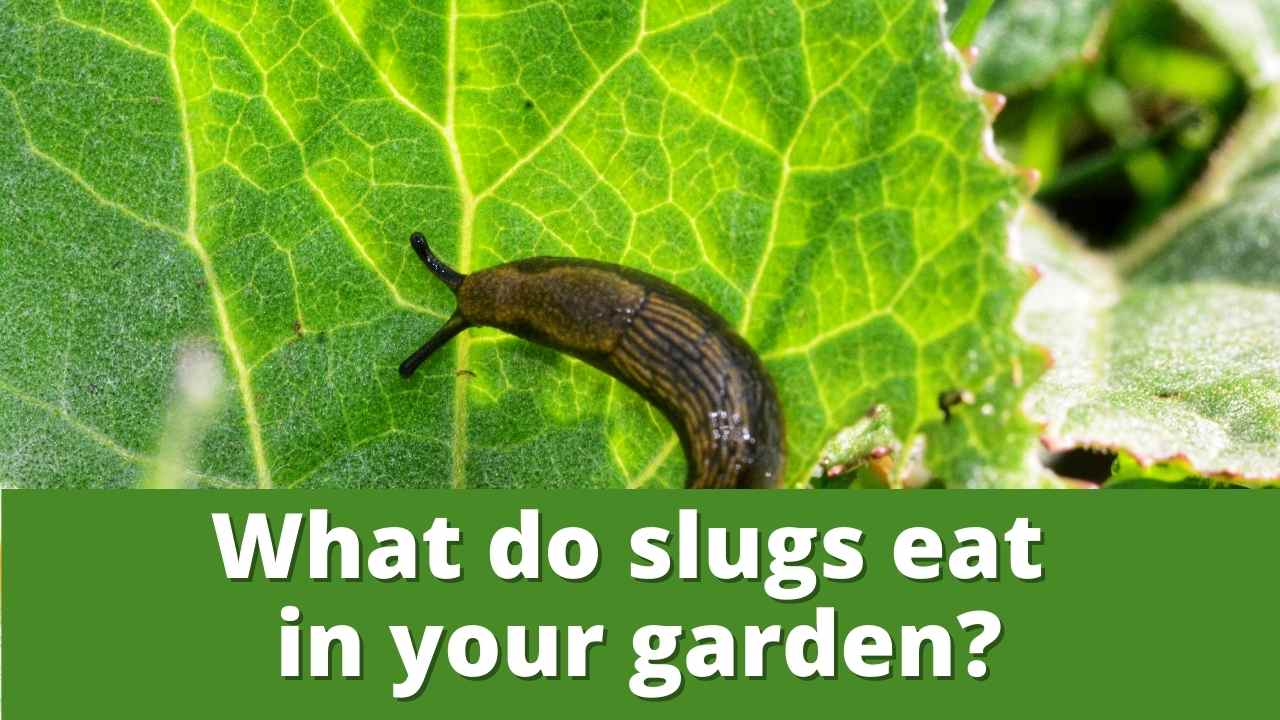
Slugs in the garden?
Are you tired of slugs munching their way through your garden?
Are you tired of slugs munching their way through your garden? Can't say that I blame you.
Today I’m going to show you a neat trick for outsmarting slugs. Plus, we'll debunk a myth about slugs that's been around for a long time...
So let's get started talking about those slimy things...
So if you like to grow lettuce but you don't like to battle slugs munching on your salad greens then I think you'll find these tips especially helpful...
It's something I've observed over the past 35 years of gardening.
DID YOU KNOW?
Slugs have thousands of teeth! These tiny chompers are part of a rasping structure called a radula. As if that wasn't weird enough... slugs breathe through a blowhole that opens up on one side of their bodies.
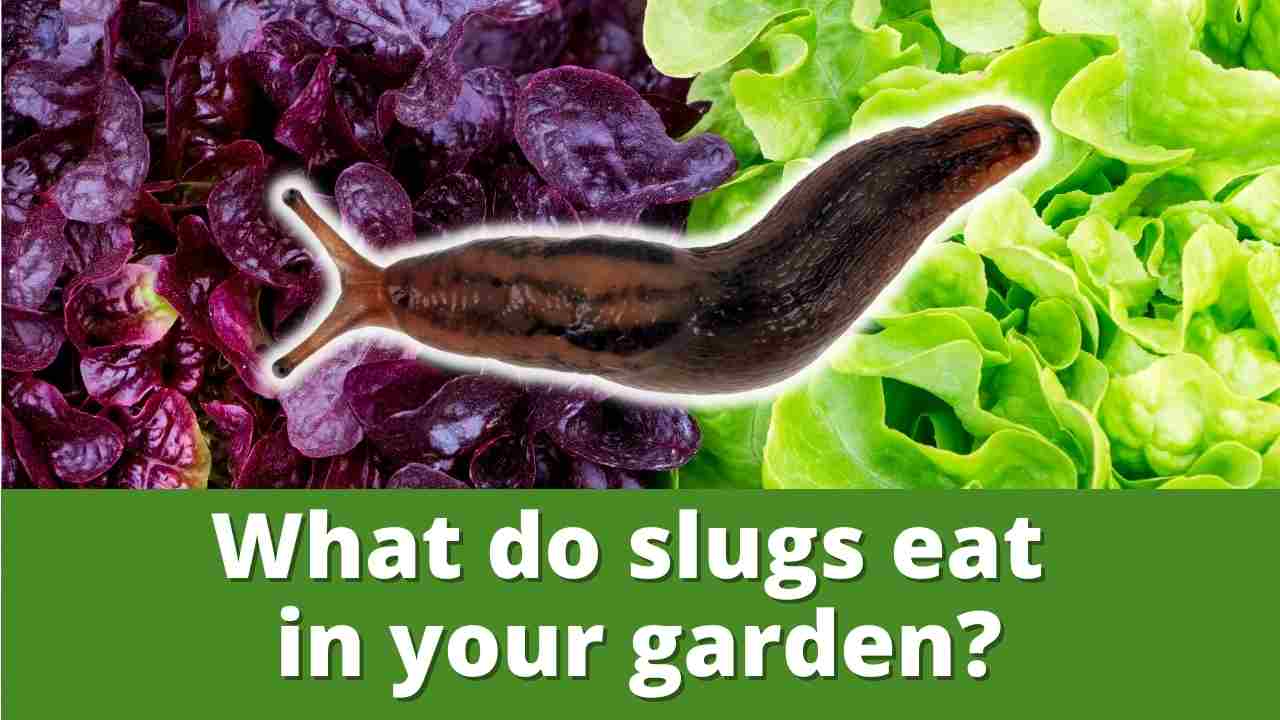
Given a choice, what do slugs eat in your garden?
So let's pretend that a slug sees lettuce on the menu, red lettuce and green lettuce. Now if given the choice which do you think it prefers, red lettuce or bean lettuce?
From what I’ve observed, nine times out of ten slugs go for the green lettuce and avoid the red.
So why is that?
QUICK TIP: HOW TO REMOVE SLUG SLIME
Slug slime is actually a liquid crystal. But try to wash it off with water and things get worse. That's because slug slime "attracts" water. TIP: Rub your hands with Borax powder. You can find it in the laundry detergent aisle.
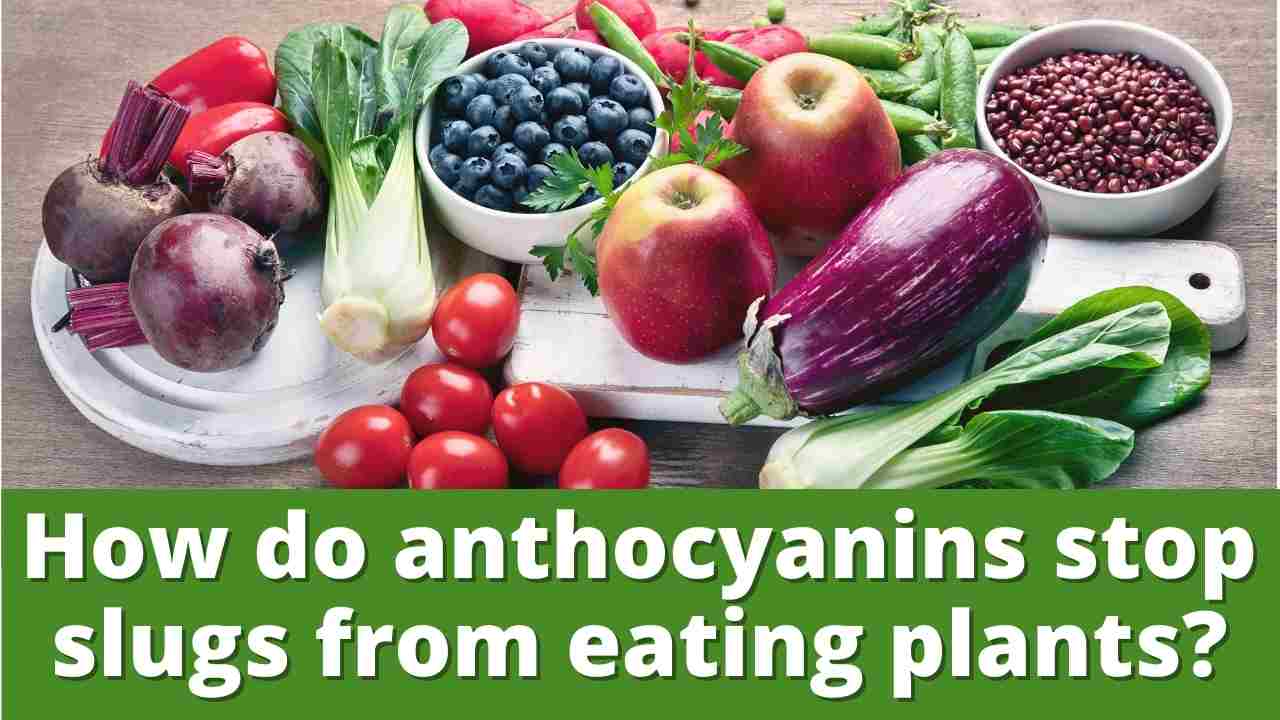
How do anthocyanins stop slugs from eating plants?
Red lettuce is more bitter thanks to anthocyanins. That's the compound or pigment that gives flowers its blue color, and foods like blueberries, raspberries, even black rice.
Anthocyanins are thought to have a protective role in plants against extreme temperatures. Tomato plants, for example, are protected against cold stress with the presence of anthocyanins.
Anthocyanins are mildly astringent which is responsible for the bitter taste. More foods that contain a high anthocyanin "punch" include:
- Fruits: Black plums, blood oranges, cherries, black and red grapes and pomegranates.
- Vegetables: Red cabbage, red onions, red radishes, purple cauliflower, purple corn and the skin of purple eggplant.
- Legumes and rice: Black beans, black rice and black soybeans.
- Beverages: Grape juice and wine.
QUICK TIP: HOW DO ANTHOCYANINS HELP PLANTS?
Anthocyanins help plants in many ways. They attract pollinators and protect plants from environmental stressors like UV (ultraviolet) light, drought, and cold.
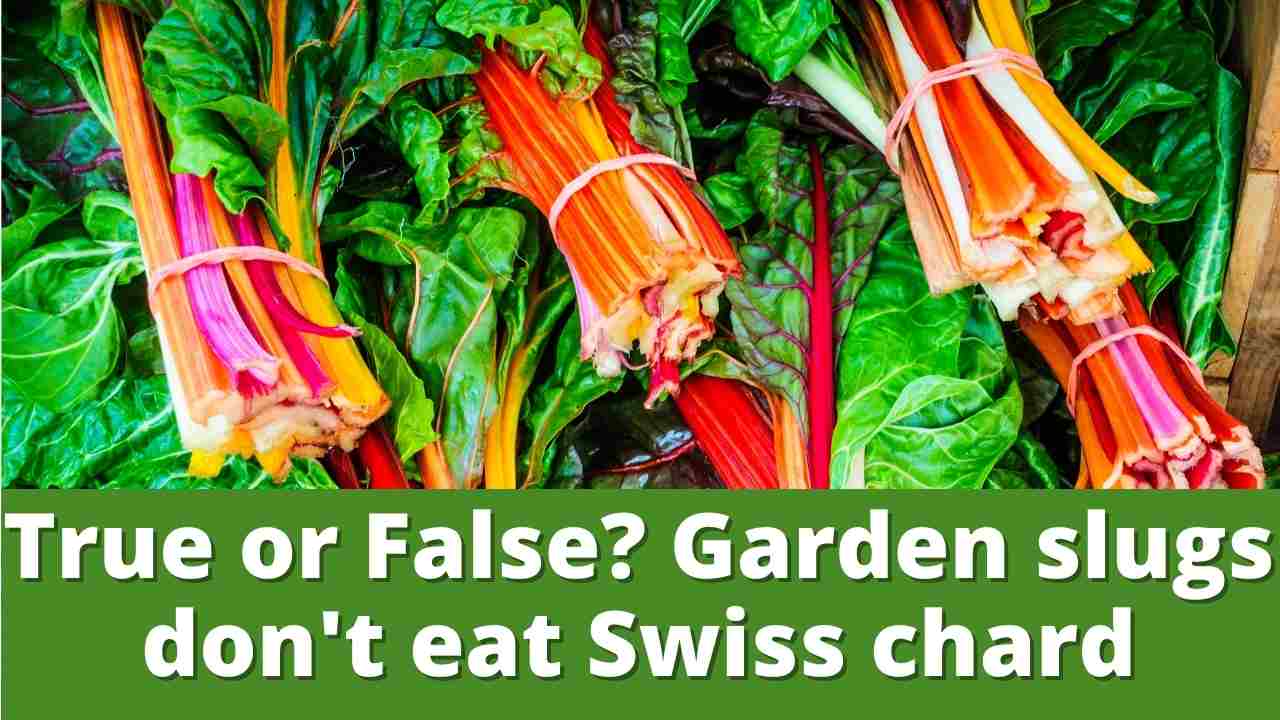
Time to debunk a myth about what slugs eat in the garden
Myth: Slugs avoid fuzzy leaves. I grow healthy clumps of blue poppies and believe me, slugs chew on them, no problem!
Myth: Slugs don't like Swiss chard. Well that's silly! Of course they do!
Myth: Slugs don't like celery. Nonsense. That's why I grow celery in containers on our deck.
DID YOU KNOW? THE SLIPPERY MASCOT
The slug is the official mascot for the University of California Santa Cruz. Go slugs! Slime 'em!
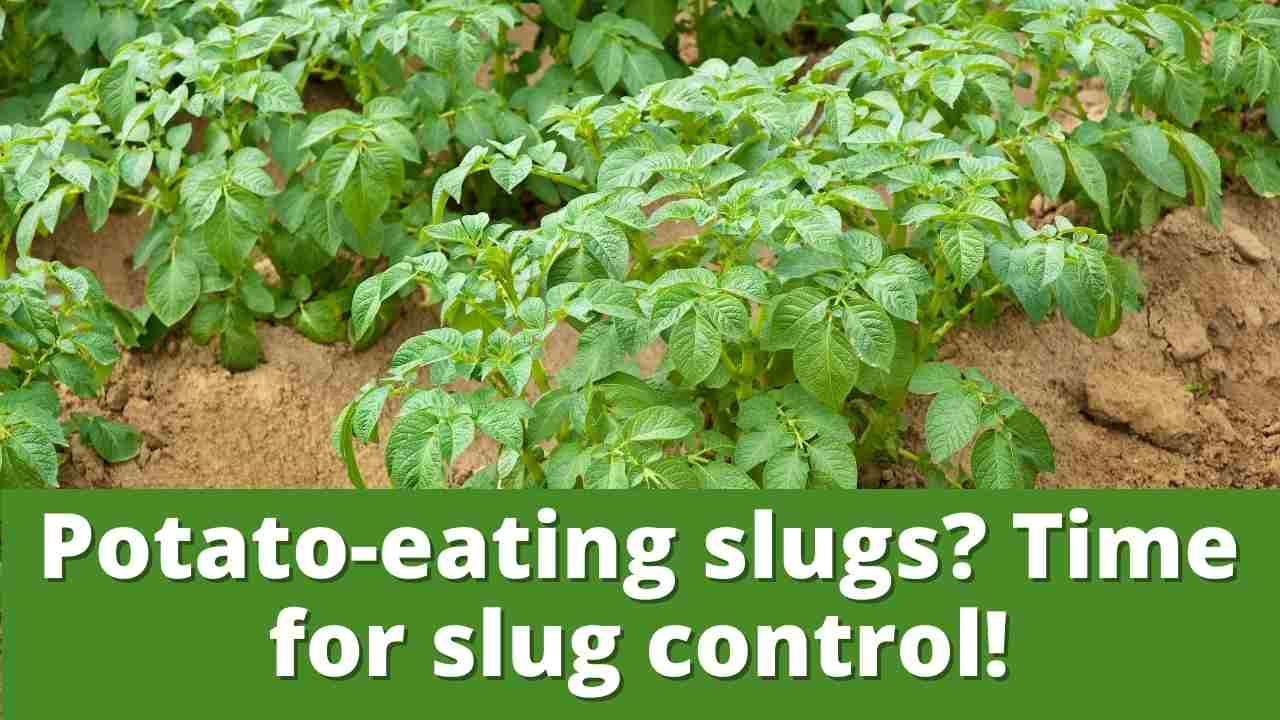
Do slugs eat rhubarb? Time for slug control!
Here's something else...
Lots of people say that slugs don't like spicy veggies such as onions. Well, that's not true. Baby slugs bore into our onions tops with childlike delight.
And potatoes? Hello! Yes, slugs have been known to turn potato leaves into Swiss cheese.
What about rhubarb? Right! I've never seen a slug that didn't go for rhubarb.
Now many berries are said to be safe. Well, that's a crock! I can't tell you how many times I've gotten ready to dig into a big juicy strawberry only to find that there's a slug already inside of it! ICK!
Slugs have terrible table manners! They will eat most anything that grows.
Can I tell you a little secret? I'm working on communicating with slugs. I'll let you know how it goes, OK?
DID YOU KNOW? GIANT SLUGS!
Europe's ashy-grey slug can reach 10 inches long. Some sea slugs, such as the black sea hare, can each nearly 40 inches and weigh 30 pounds!

How to stop slugs from eating plants?
And what about organic slug control
There are a lot of crafty ways to kill slugs. More than I can cover in this article. But I'd like to think that a good defense, that is, before you even step into the garden is to simply pick and choose plants to grow as best as you can.
For example, grow veggies that slugs might avoid, and embrace this thought as you shop for seeds and seedlings.
While your growing conditions might be completely different than mine, if you had a choice between growing red lettuce or green lettuce I might probably choose the red lettuce.
Bottom line: Give it your best shot, trust the process. Try different varieties and be a citizen scientist: Observe any differences and hey send me a photo, because one thing's for sure: A slug can't run away when you try to take it's picture!
Enjoy this article? You might also enjoy these:
"What Do Slugs Eat?" - by Marion Owen
Who is Marion Owen?
Learn the fine art of nurturing your dream garden using organic methods that have been fine-tuned over 35 years by Marion Owen, New York Times bestselling author.
Gardening techniques that have been proven to work by Marion's students longing for their own dream garden in landscapes as diverse as North America, India, Europe, UK and Australia.
Finally, you can throw away all those harsh chemicals, as Marion only teaches methods that are in tune with Mother Nature!
Marion Owen's approach to fulfilling your dream garden will save you hundreds of dollar. At the same time bring natural vitality to you, your family and the planet.
Start to grow flowers, herbs and vegetables using a methodology in harmony with the natural environment.

